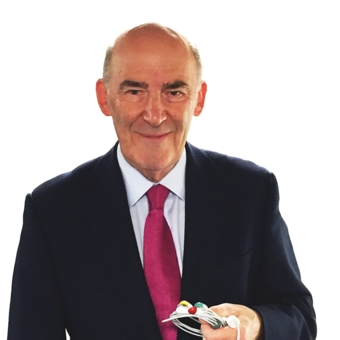
FAFA Congress Report
March 20th, 2017
Guest entry: Dr. Peter KenediOn March 4th, 2017, FAFA (the Frankfurt Academy For Arrhythmias), a symposium for heart rhythm disorders, took place for the seventh time in the full lecture hall of the German National Library. This event has been one of the best cardiologic continuing education events in Frankfurt for years. The event was led by PD Dr. Chun and PD Dr. Schmidt from the CCB (Cardiovascular Center Bethanien). Current therapeutic strategies for rhythm disorders were discussed among cardiologists from Austria, Belgium and Germany.
The theme of the first block was catheter therapy for atrial fibrillation. In 2015, 76,000 catheter ablations were performed in Germany alone, with the success rate being dependent upon the experience of the physician performing the procedure.
There are two types of ablation: radiofrequency, or obliteration using heat, and cryoballoon, or obliteration using cold. The former was the most commonly used method used in 2012. Catheter ablation is performed in patients with paroxysmal atrial fibrillation, and has a complication rate of only 6%. Determining the success rate of catheter ablation is difficult, as patients often continue taking medication therapy, and follow-up care if often inadequate. There is not yet a quality control in Germany for how to determine the success rate. Relapses in the form of new rhythm disorders can present, and a two-minute episode of atrial fibrillation during a 24-hour ECG recording is also seen as a relapse.
Throughout the event, well-renowned physicians held lectures on various topics and new cardiovascular findings. Prof. Kuck compared both surgical procedures and illustrated the advantages of cryoballoon ablation. Prof. Arentz described techniques of pulmonary vein isolation using high-frequency ablation.
Prof. Pedro Brugada, who in 1992 described a rare disease that can lead to sudden death in young people, held the honorary lecture.
The prevention of stroke was the topic of one blocks Novel oral anticoagulants (blood thinners), which were first introduced eight years ago show overwhelmingly convincing success. Prof. Antz explained the four medications currently available on the market. In daily clinical use, Dabigatran, Rivaroxaban, Apixaban and Edoxaban have shown increased safety and clearly reduced bleeding in comparison to clinical studies.
New technical device developments, for example the subcutaneous defibrillator and the leadless pacemaker, were discussed by Dr. Przibille. The lecture was supported by a live case broadcast from the catheterization lab showing both ablation techniques and atrial appendage closure.



